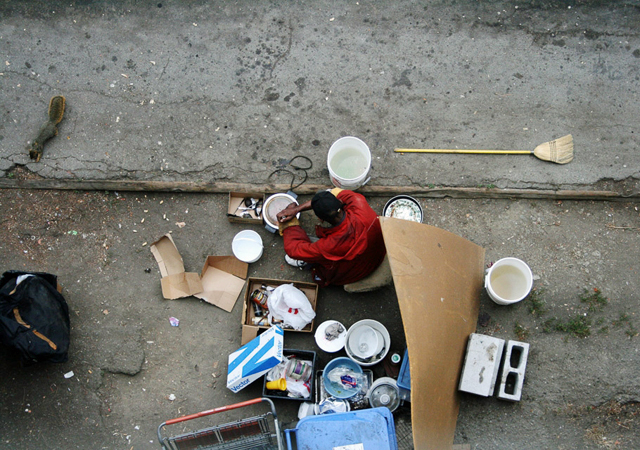
A hat tip to colleague Mark Trautwein, who alerted us to this piece by Danah Boyd, originally published on Medium and then on Huffington Post: San Francisco's (In)Visible Class War Boyd observes what many — most? — of us do every day: the staggering spectacle of San Francisco homelessness set against the city's spectacular wealth. Of course, San Francisco isn't the only place you can see this. But Boyd argues there's a difference here:
San Francisco is in the middle of a class war. It’s not the first or last city to have heart-wrenching inequality tear at its fabric, challenge its values, test its support structures. But what’s jaw-dropping to me is how openly, defensively, and critically technology folks demean those who are struggling. The tech industry has a sickening obsession with meritocracy. Far too many geeks and entrepreneurs worship at the altar of zeros and ones, believing that outputs can be boiled down to a simple equation based on inputs. In a modern-day version of the Protestant ethic, there’s a sense that success is a guaranteed outcome of hard work, skills, and intelligence. Thus, anyone who is struggling can be blamed for their own circumstances. This attitude is front and center when it comes to people who are visibly homeless on the streets of San Francisco, a mere fraction of the total homeless population in that city.
Boyd prescribes a remedy for the attitudes she describes, born of an experience with a co-worker a decade ago — the simple act of talking to those living on the street:
If you’re living in the Bay Area and working in tech, take a moment to do what I asked my colleague to do a decade ago. Walk around the Tenderloin and talk with someone whose poverty is written on their body. Respectfully ask about their life. Where did they come from? How did they get here? Where do they want to go? Ask about their hopes and dreams, struggles and challenges. Get a sense for their story. Connect as people. Then think about what meritocracy in tech really means.